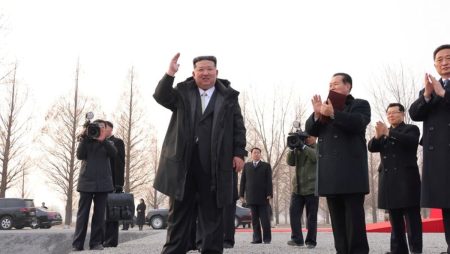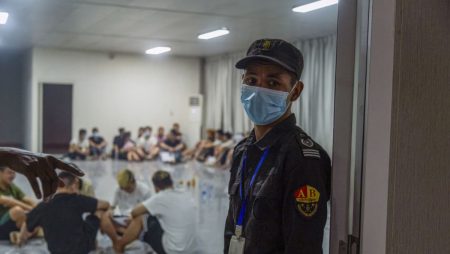Government’s Commitment to Citizens Abroad
On Tuesday, Minister Mahendra highlighted the government’s ongoing commitment to monitoring the cases of Iwan Setiawan Sinaga and Hambali, emphasizing that the state has a duty to its citizens regardless of their location. “Every citizen, wherever they are, is the responsibility of the government to provide attention, protection, and defence,” he stated. This sentiment underscores the government’s broader mandate to ensure the welfare and legal rights of its nationals, even when they are far from home. The cases of Sinaga and Hambali serve as poignant examples of the complex legal and ethical challenges the government faces in advocating for its citizens on the international stage.
Sinaga’s Case and Legal Considerations
In discussing Iwan Setiawan Sinaga’s case, the minister explained that the convicted rapist had recently been sentenced in the United Kingdom. Under the UK’s legal system, convicts must serve at least 30 years in prison before they can apply for a reduced sentence. This lengthy sentence reflects the severity of Sinaga’s crimes and the stringent measures in place to ensure justice. Mahendra noted that due to the nature of the sentence, Sinaga’s repatriation to Indonesia is not a pressing priority. “So, (Sinaga’s) repatriation is not a priority that must be addressed immediately,” he clarified. The government’s approach here is to respect the judicial process and the laws of the country where the crime was committed while maintaining a long-term perspective on potential repatriation.
Hambali’s Detention and the Pursuit of Justice
The case of Hambali, who has been detained at Guantanamo Bay for over two decades without a trial, presents a different set of challenges. Hambali’s prolonged detention without a trial is a complex issue involving both terrorism and human rights concerns. Minister Mahendra acknowledged the gravity of the situation, stating that the Indonesian government has requested the United States to expedite Hambali’s trial. “But until now, there has been no trial. It’s a terrorism issue on one hand and a human rights issue on the other. We have not had a somewhat detailed discussion about Hambali’s repatriation,” he said. The government’s efforts to address this issue reflect a delicate balance between ensuring national security and upholding international human rights standards.
Focus on Indonesian Migrant Workers
While the cases of Sinaga and Hambali are significant, Mahendra emphasized that the government’s primary focus is on the welfare of Indonesian migrant workers abroad. Currently, there are approximately 54 Indonesian citizens who have been sentenced to death in Malaysia and Saudi Arabia. This situation is a pressing concern, and the government has already engaged in discussions with authorities in these countries to address the death penalty issue. “There are approximately 54 Indonesian citizens sentenced to death in Malaysia and Saudi Arabia … That is our priority,” he stated. The minister’s words underscore the government’s commitment to advocating for the rights and lives of these workers, who are often vulnerable and far from their homeland.
Advocacy and Diplomatic Efforts
The government’s efforts to protect its citizens abroad involve a combination of legal, diplomatic, and humanitarian strategies. By engaging with foreign authorities and international organizations, the government aims to secure fair treatment and due process for its nationals. In the case of the Indonesian migrant workers facing the death penalty, the government has been proactive in holding discussions with the Saudi Arabian and Malaysian authorities. These discussions are part of a broader strategy to ensure that the circumstances and legal processes surrounding these cases are thoroughly examined and that the rights of the workers are protected. The government’s advocacy not only reflects its responsibility towards its citizens but also demonstrates its commitment to upholding international human rights standards.
Balancing Responsibilities and Challenges
In navigating these complex cases, the Indonesian government faces a multitude of responsibilities and challenges. From ensuring fair trials and humane treatment to advocating for the rights of vulnerable citizens, the government’s approach is multifaceted and nuanced. Minister Mahendra’s statements highlight the government’s dedication to these tasks, recognizing the delicate balance between legal, ethical, and diplomatic considerations. As the government continues to monitor and address these cases, it strives to uphold its commitment to all citizens, both at home and abroad. The ongoing efforts to secure justice and protection for Indonesian nationals, whether they are convicted criminals or vulnerable migrant workers, reflect the government’s unwavering dedication to its responsibilities and its role in the international community.












